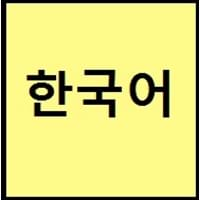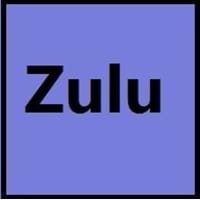Korean vs Zulu
Countries
China, Jilin Province, North Korea, South Korea, Yanbian
South Africa
National Language
North Korea, South Korea
South Africa
Second Language
Not spoken in any of the countries
Botswana, Lesotho, Malawi, Mozambique, Swaziland, Zimbabwe
Speaking Continents
Asia
Africa
Minority Language
Japan, People's Republic of China, Russia, United States of America
Not spoken in any of the countries
Regulated By
The National Institute of the Korean Language
Pan South African Language Board
Interesting Facts
- Korean has borrowed words from English and Chinese.
- Korean has two counting systems. First, is based on Chinese characters and numbers are similar to Chinese numbers, and second counting system is from words unique to Korea.
- The meaning of word "Zulu" means "Sky"and Zulu was the name of the ancestor who founded the Zulu royal line in about 1670.
- Zulu language has many loanwords borrowed from Afrikaans and English Languages.
Similar To
Chinese and Japanese languages
Xhosa Language
Derived From
Not Available
Not Available
Alphabets in
Korean-Alphabets.jpg#200
Zulu-Alphabets.jpg#200
Writing Direction
Left-To-Right, Horizontal, Top-To-Bottom
Not Available
Hello
안녕하세요. (annyeonghaseyo.)
Sawubona
Thank You
감사합니다 (gamsahabnida)
Ngiyabonga
How Are You?
어떻게 지내세요? (eotteohge jinaeseyo?)
unjani
Good Night
안녕히 주무세요 (annyeonghi jumuseyo)
okuhle ebusuku
Good Evening
안녕하세요 (annyeonghaseyo.)
okuhle kusihlwa
Good Afternoon
안녕하십니까 (annyeong hashimnikka)
okuhle ntambama
Good Morning
안녕히 주무셨어요 (An-yŏng-hi ju-mu-shŏ-ssŏ-yo)
okuhle ekuseni
Please
하십시오 (hasibsio)
Ngiyacela
Sorry
죄송합니다 (joesonghabnida)
Ngiyaxolisa
I Love You
당신을 사랑합니다 (dangsin-eul salanghabnida)
Ngiyakuthanda wena
Excuse Me
실례합니다 (sillyehabnida)
Uxolo
Where They Speak
South Korea
Gabon, South Africa
How Many People Speak
Not Available
Dialect 2
Gyeongsang
central KwaZulu-Natal Zulu
Where They Speak
South Korea
Georgia, South Africa
How Many People Speak
Not Available
Dialect 3
Hamgyŏng
Ndebele
Where They Speak
China, North Korea
Zimbabwe
Second Language Speakers
Not Available
Native Name
한국어 (조선말)
isiZulu
Alternative Names
Hanguk Mal, Hanguk Uh
Isizulu, Zunda
French Name
coréen
zoulou
German Name
Koreanisch
Zulu-Sprache
Pronunciation
Not Available
Not Available
Ethnicity
Koreans
Zulu people
Origin
Before 1st century
19
Language Family
Koreanic Family
Niger-Congo Family
Subgroup
Not Available
Benue-Congo
Branch
Not Available
Beatu
Early Forms
Old Korean, Middle Korean and Korean
urban Zulu
Standard Forms
Pluricentric Standard Korean, South Korean standard and North Korean standard
Deep Zulu
Signed Forms
Korean Sign Language
Not Available
Scope
Individual
Individual
ISO 639 6
Not Available
Not Available
Glottocode
kore1280
zulu1248
Linguasphere
45-AAA
99-AUT-fg
Language Type
Living
Living
Language Linguistic Typology
Subject-Object-Verb
Subject-Verb-Object
Language Morphological Typology
Agglutinative
Not Available
Korean and Zulu Language History
Comparison of Korean vs Zulu language history gives us differences between origin of Korean and Zulu language. History of Korean language states that this language originated in Before 1st century whereas history of Zulu language states that this language originated in 19. Family of the language also forms a part of history of that language. More on language families of these languages can be found out on Korean and Zulu Language History.
Korean and Zulu Greetings
People around the world use different languages to interact with each other. Even if we cannot communicate fluently in any language, it will always be beneficial to know about some of the common greetings or phrases from that language. This is where Korean and Zulu greetings helps you to understand basic phrases in Korean and Zulu language. Korean word for "Hello" is 안녕하세요. (annyeonghaseyo.) or Zulu word for "Thank You" is Ngiyabonga. Find more of such common Korean Greetings and Zulu Greetings. These greetings will help you to be more confident when conversing with natives that speak these languages.
Korean vs Zulu Difficulty
The Korean vs Zulu difficulty level basically depends on the number of Korean Alphabets and Zulu Alphabets. Also the number of vowels and consonants in the language plays an important role in deciding the difficulty level of that language. The important points to be considered when we compare Korean and Zulu are the origin, speaking countries, language family, different greetings, speaking population of these languages. Want to know in Korean and Zulu, which language is harder to learn? Time required to learn Korean is 88 weeks while to learn Zulu time required is 44 weeks.





